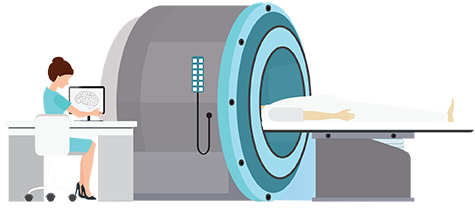

Looking to attend radiology schools in Tennessee? As a professional in the radiology field, you can play an integral part in health care by creating internal images of patients’ bodies that are used by physicians to locate, diagnose and treat illnesses. There are many available careers in this field, from professions that take images of hearts to professions that take ultrasounds of unborn babies. Below you can read about a few prominent careers in the field:
Keep reading to learn more about radiology salaries and schools in Tennessee, as well as how to become a radiologic technologist in the state.
Here are some schools in Tennessee that offer radiology programs:
Here you can see the basic steps to become a radiologic technologist. This career requires a postsecondary education and state licensing.
The following information may shed some light on potential career opportunities for graduates of radiology schools in Tennessee. Wages can vary depending on factors such as experience, education and location.
| Career | Total Employment | Annual Mean Wage |
|---|---|---|
| Cardiovascular Technologists and Technicians | 1,180 | 46,840 |
| Diagnostic Medical Sonographers | 1,630 | 62,660 |
| Magnetic Resonance Imaging Technologists | 1,440 | 58,710 |
| Nuclear Medicine Technologists | 610 | 63,700 |
| Radiologic Technologists | 4,270 | 51,120 |